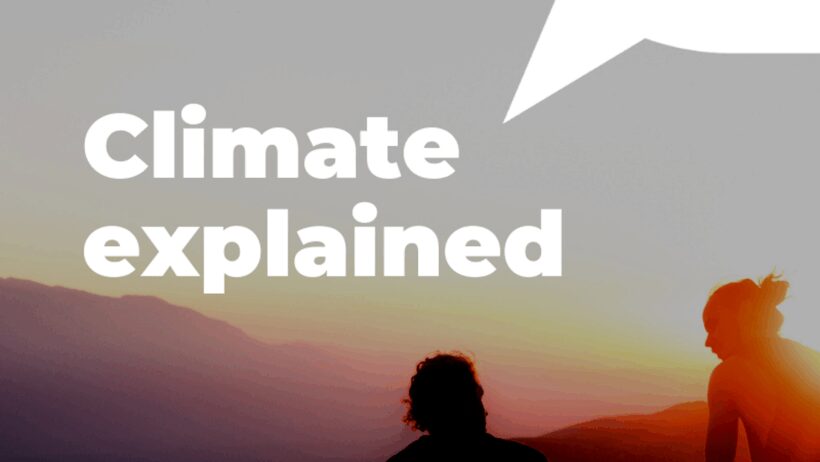Climate change has emerged as one of the most pressing issues of our time, yet an intriguing segment of the population remains skeptical about its veracity. This divergence in belief raises a host of questions. Why do some individuals persist in disputing the overwhelming scientific consensus? What psychological, social, and economic factors underlie this denial? Understanding these motivations is critical in addressing and ultimately solving the climate crisis.
At the outset, it is crucial to acknowledge the foundational scientific consensus that climate change is real and largely driven by human activity—specifically, the combustion of fossil fuels, deforestation, and industrial processes that contribute to greenhouse gas emissions. Numerous reputable organizations, including the Intergovernmental Panel on Climate Change (IPCC), have published extensive research indicating that atmospheric carbon dioxide levels have risen dramatically since the Industrial Revolution, leading to global warming, melting ice caps, severe weather patterns, and ecosystem disruptions.
Despite this clarity, resistance persists. The roots of this skepticism can be traced through various interlocking domains: psychological mechanisms, cultural identities, economic interests, and political affiliations. Understanding these realms is essential in dissecting the phenomenon of climate change denial.
Psychologically, the human brain is hardwired for heuristics—mental shortcuts that facilitate quick decision-making. These shortcuts can lead to cognitive biases, such as confirmation bias, where individuals tend to seek out information that corroborates their pre-existing beliefs while dismissing contradictory evidence. In a world inundated with data and contradictory narratives, the complexity of climate science can foster confusion and disbelief. Additionally, the fear associated with recognizing the reality of climate change can evoke what is known as “cognitive dissonance.” Many individuals find it easier to deny what they perceive as a threat than to confront the uncomfortable truths it represents.
Moreover, climate change has morphed into a political and cultural battleground. In many regions, acceptance or denial of climate science is heavily influenced by political affiliation. For instance, conservative ideologies often emphasize market freedom and skepticism of government intervention, aligning with groups that question climate change to support their worldview. This alignment creates a sense of tribalism, where affirming one’s group identity becomes more crucial than accepting scientific evidence. Those who subscribe to disbelief in climate change might see themselves as defenders of a way of life threatened by progressive policies intended to mitigate climate impacts.
Furthermore, economic factors play a pivotal role. The fossil fuel industry, a behemoth bolstered by decades of investment and political support, has an inherent interest in perpetuating climate skepticism. By funding misinformation campaigns and lobbying against regulations, industry leaders stoke doubt among the public. Many individuals in regions dependent on fossil fuel economies may also harbor fears that acknowledging climate change could jeopardize their jobs and livelihoods. In such contexts, acceptance of climate change becomes synonymous with the loss of economic stability.
Equally important is the role of misinformation in shaping public perception. Social media platforms and the internet serve as fertile ground for the spread of misleading narratives and pseudo-scientific articles that undermine public trust in climate science. The virality of such content, often sensationalized or presented without proper context, can further entrench denial. The allure of contrarian viewpoints provides an enticing narrative that resonates with those feeling alienated by mainstream discourse.
Addressing climate change denial requires a multifaceted approach, recognizing the emotional and social undercurrents underlying disbelief. Communication strategies must be inclusive and empathetic, aiming to create dialogue rather than confrontation. Rather than presenting climate science as an imposition, it is vital to engage audiences by connecting the issue to their immediate concerns—be it health, economics, or local environmental changes. People often respond more favorably when they can perceive the personal stakes involved.
Additionally, fostering media literacy is paramount in combatting misinformation. Educating the public on how to discern credible sources from dubious ones equips individuals with the tools needed to navigate the complex landscape of climate information. Encouraging the consumption of reputable scientific findings, alongside promoting respectful discussions about differing beliefs, shifts the focus away from divisive politics toward collective action and understanding.
The undeniable realities of climate change necessitate immediate action and cooperation across all societal sectors. While it is frustrating to contend with skepticism, it is essential to approach the issue with patience and a willingness to engage empathetically. Climate change represents a global challenge that transcends ideological divides, making it critical for individuals to understand the science and the sociopolitical contexts shaping discourse.
In summation, the belief that climate change isn’t real is not merely a matter of logic but is steeped in a complex web of psychological, social, cultural, and economic factors. Denying the realities of climate science allows individuals to maintain their identities, preserve economic interests, and sidestep the emotional discomfort that accompanies such a monumental crisis. To effectively counteract climate denial, a combination of empathy, education, and engagement must be employed, fostering a more informed and collaborative society willing to face this pressing global threat head-on.








